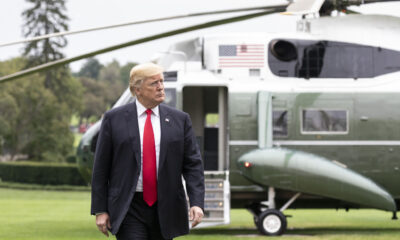Constitution
Ayn Rand world: regulation

In an Ayn Rand world, regulation would be private, not governmental, and would work on an old principle: value for value in honest trade. Government regulation, however, violates the trading principle, the Constitution, and the rights of free people to produce, trade, or even consume.
Ayn Rand on regulation
Gary Weiss (Ayn Rand Nation) fears a world without government regulation. He does little to describe what government regulation does for people and why they would miss it. Like so many liberals, Weiss says that an Ayn Rand world would have no government regulation and hints, without evidence, that such a world would have no regulation of any kind. More to the point, he tells his readers what he fears and expects them to fear it as much as he does. Ayn Rand had no patience with people like him, and one can scarcely blame her.
Nor did Ayn Rand ignore regulation completely. She treated the subject in several essays. Her basic message was the same in each one: buyer and seller would do business by their own rules. Neighbor would treat neighbor by another set of rules that they both agreed upon. Pollution would not be a total “externality,” but a trespass. Contrary to nearly all liberal thought on the environment, everyone in society has a neighbor, and everyone must respect the rights of his neighbor(s).

The Terrafugia Transition, the world's first mass-produced light sport road-legal aircraft. Photo: Ian Maddox, Emerald City, WI; CC BY 2.0 Generic License.
Ayn Rand wrote almost no essays on the philosophy of law. She did write one essay that could qualify. In “The Property Status of Airwaves,” she proposed a way to regulate electronic programming and communications (chiefly radio, television, “citizen’s band,” and “HAM” in her day). Frequencies should belong, not to the government, but to specific resident owners. They could then sell their rights to communications or broadcast operators, the same way that landowners sell development, mineral, water, and other rights.
Law follows from politics, and politics from ethics. So the principles she expressed in her writings on ethics and politics would easily inform “Objectivist law.” “Airwaves” demonstrates those principles better than any other essay she wrote. They are:
- Anyone who buys something, has the right to buy as he chooses, and is responsible for what he buys and how he uses it.
- Anyone must treat his neighbors as he expects those neighbors to treat him: with mutual respect, each of the other’s rights.
- If buyer and seller, or neighbor and neighbor, disagree, they go to court. Recall that court is one of the three institutions of government that Ayn Rand would keep.
But, one might object, how can one person know what to watch out for? How can any buyer, or neighbor, know what risks to take, and what to avoid? How to know what products, or activities next door (or further away), are dangerous to him, or not? The answer is simple: Information about risk becomes a good, and research into risk becomes a service. And if a good or a service is important enough, some person, or group of persons, can offer that good or that service at a profit (or “operating surplus”). And so they do. Underwriters’ Laboratories has offered safety research for decades. Abolish government regulation of any consumer industry today, and tomorrow UL will set up a new safety research division on that industry. Had UL had car-safety and aviation-safety divisions, to do what the National Highway Traffic Safety and Federal Aviation Administrations now do, they could have approved a new vehicle like the Terrafugia Transition two years sooner than those two agencies did.
How government regulation works out
I could say it…
The delay in approval of such a remarkable vehicle as the Terrafugia Transition is only the mildest bad result of government regulation. Two different agencies had to approve it separately, and each had to negotiate how to bend its rules. But the idea of an aircraft that one could drive safely on a street or highway (and re-fuel at a conventional fueling station) intrigued officials at both agencies. Without that, the Terrafugia Transition would never fly.
Government says it regulates human behavior to make our society safer. But does that authorize it to destroy ways of doing things that human beings have done safely for years? Why, for instance, is the Department of Transportation making new rules to forbid a farm family to divide the farm “chores” among the children of the farm owners? Why does the government suddenly say that one needs a commercial driver’s license to drive a tractor on a family farm? Farm boys have driven tractors for years. Accidents happen, but accidents can as easily happen to adult farm hands. If farmers now must hire more adults and pay to get them their drivers’ licenses and other work permits, many farm families will not be able to work their farms at all.
Three motives suggest themselves, and neither has anything to do with safety:
- The government is carving out a captive market for the United Farm Workers’ Union, the International Brotherhood of Teamsters, or other unions.
- The government favors large “factory farms” over family farms by making family farms too expensive to work at a profit or even at break-even.
- The government wants to transfer prime farmland to the wild under UN Agenda 21.
Nor does the government seem willing to respect religious beliefs. The Washington Times reported last year when the Food and Drug Administration raided Amish farms for selling non-heat-treated milk across State lines. This is another over-extension of the Commerce Clause of the Constitution,
Furthermore, the agencies that make these rules fall under the executive branch of government. But clearly they are quasi-legislative and quasi-judicial in character. As such they weaken the separation of powers. They act as legislature, executive, and court, all in one. The Framers of the Constitution never imagined such a thing. Nor does the Constitution authorize Congress to delegate its powers in this way, nor to “ordain or establish” any court that does not answer directly to the Supreme Court. Yet Congress had done precisely that in creating every one of the hundreds of agencies that regulate every aspect of the behavior of American citizens, nationals, and lawful residents.
…but I won’t.
Ayn Rand, of course, objected fundamentally to the idea that a government should regulate anything except the use of force in society. Governments exist to manage force. So political authority is force. No one disputes that. But for a century, the political theory called Progressivism has conned the American public to accept government management of many things besides force. How the people ran their farms, factories, and other affairs without the government, few can imagine. But if half the fears that Progressive advocates express today are reasonable, the casualties from unsafe products or work rules ought to have rivaled those of the War Between the States.
The United States government today acts as if the American people are stupid, evil, or both. Yet it pretends to fill its own ranks from a somehow better class of people. Ayn Rand would surely offer this advice:
Contradictions do not exist. Whenever you find yourself facing a contradiction, check your premises. You will find that one of them is wrong.
This is the second in the Ayn Rand World series.
ARVE error: need id and provider
[amazon_carousel widget_type=”ASINList” width=”500″ height=”250″ title=”” market_place=”US” shuffle_products=”True” show_border=”False” asin=”0451233263, 0452281253, 0451191153, 0452011876, 0451163931, 0451147952, 0451163087, 0451149165, 0452264863, 0452011841″ /]

Terry A. Hurlbut has been a student of politics, philosophy, and science for more than 35 years. He is a graduate of Yale College and has served as a physician-level laboratory administrator in a 250-bed community hospital. He also is a serious student of the Bible, is conversant in its two primary original languages, and has followed the creation-science movement closely since 1993.
-

 Accountability4 days ago
Accountability4 days agoWaste of the Day: Principal Bought Lobster with School Funds
-

 Civilization1 day ago
Civilization1 day agoWhy Europe Shouldn’t Be Upset at Trump’s Venezuelan Actions
-

 Executive2 days ago
Executive2 days agoHow Relaxed COVID-Era Rules Fueled Minnesota’s Biggest Scam
-

 Constitution3 days ago
Constitution3 days agoTrump, Canada, and the Constitutional Problem Beneath the Bridge
-

 Christianity Today1 day ago
Christianity Today1 day agoSurprising Revival: Gen Z Men & Highly Educated Lead Return to Religion
-

 Civilization2 days ago
Civilization2 days agoThe End of Purple States and Competitive Districts
-

 Executive2 days ago
Executive2 days agoWaste of the Day: Can You Hear Me Now?
-

 Civilization5 days ago
Civilization5 days agoThe Conundrum of President Donald J. Trump











[…] No government regulations. […]
So… no government regulation. Tell me, who is going to ensure that that big company up the road isn’t spilling filth into the river? Who is going to ensure that when you buy hamburgers from your neighbour, you aren’t going to end up with a dose of BSE? Who’s going to ensure the anti-biotic you take isn’t going to poison you?
As I understand Rand, if you can afford to have the quality of your food, water, air, etc checked, good for you. As for the rest… well, enjoy your tumors. That is why you need non-partisan regulation, to put the safety of the people ahead of the almighty buck.
How can you say somebody is responsible for what he buys, when they have no insight, nor input into the production process? Yes, caveat emptor and all that, but if everybody is running around, performing all sorts of checks before buying anything, the economy would grind to a halt in a flash.
You cannot leave regulation up to institutions that have profit as their primary goal. Business has been shown time and time again that is has the moral conscience of an incontinent poodle on a croquet lawn.
Your imagination is by turns lurid and lacking. Why imagine that any seller would want to poison his customers? And why imagine that only one customer would want to check these things? Did I not name in my article an organization, namely Underwriters’ Laboratories, that has been checking the safety of electrical appliances for decades? That they don’t check food or drugs is only because the government says that they have a monopoly on such research. If the government dropped it today, UL would pick it up tomorrow, or as quickly as they could tool up for it. They would know how valuable such research would be.
“No insight, no input…” What are you saying, that your fellow consumers are stupid? That’s precisely the point I make. And you just conformed to stereotype. People like you think the rest of us are stupid, but that you are smart enough to take care of the rest of us. Have you any idea how illogical and hypocritical that sounds? What makes you smarter than the rest of us? What makes you smarter than me? Seven-twenty verbal, seven-sixty maths on what was then known as the Scholastic Aptitude Test of the College Entrance Examination Board. Graduated summa cum laude with distinction in my major (of engineering) from Yale College. How’s that for smart? Can you match that?
Oh, and by the way: don’t try to flatter me with an offer of an appointment to those same regulatory agencies I condemn. That would be the equivalent of John Galt accepting the appointment as Economic Dictator of the USA from the arch-villain, Mr. Thompson, toward the end of Atlas Shrugged. I would reject that for the same reason he did: it wouldn’t work, and we both would stand in violation of too many people’s rights to count.
“Your imagination is by turns lurid and lacking. Why imagine that any seller would want to poison his customers”
Sure, like that’s never happened before, especially where big business is concerned. Take the tobacco industry for starters. For the Chinese melanin milk scare.
People will always try and cut corners where there’s profit involved, and without regulation, who’s to say that they aren’t doing something illegal. It might not be direct poisoning, but could be pumping mercury into the water, or using steroids or hormones to grow the meat faster. Without testing and regulation, how will we know what the consequences of doing that will be?
Also, your claim that private companies take over the regulation is odd, to say the least. You’re against regulation, but it’s ok for private companies to regulate. Well, let’s have a look at that, shall we?
* A private regulatory company is once again going to be driven by profit. Therefore, they are going to charge for their services. These costs will be passed on to consumers, thus increasing the price and making them more unaffordable for the poor. This will result in them having to source cheaper, unregulated and likely unsafe products. Quite the dystopian nightmare you’re painting here.
* What’s stopping a manufacturer from buying out the regulatory company? Now there’s a problem – the same company that’s making the stuff, is also saying it’s ok. Where’s the control then? For that matter, would you take off in a plane that’s been signed off by the lowest bidder?
I think your viewpoint comes from your obvious upper-class life style. You don’t seem to grasp the concept of cross-subsidisation. Yes, you might be able to afford to make sure your drinking water is pure and your steak won’t drive you mad in a few years’ time, but others can’t. And that’s where a portion of your tax dollar comes in – ensuring that your fellow man can also enjoy pure drinking water and safe meat. Why would you begrudge them that basic right, based purely on the fact that you’re a “have” and they’re a “have not”? That doesn’t sound very Christian to me.
Under your so-called perfect system, that wouldn’t happen. The poor would be left scrounging for the dregs they could afford. Then again, it’s also the plot of a 1,000 sci-fi novels.
As for the no input and input – tell me – how are McDonalds’ burgers made? How are Nike sneakers made? Under what conditions? What has the chicken you eat for Sunday roast been fed? What resources do you have at your disposal now to find that out, and make sure that everything is ok. Not knowing the production process has nothing to do with being stupid. Business dosn’t want you to know what they do, and if there was no regulation, they’d make damn sure you didn’t know what was going on. It has nothing to do with qualifications – waving your degree in front of the Nike office isn’t going to gain you access.
As for your strange last paragraph, I can’t say I recall offering you employment in the regulatory agencies. I’m merely saying that private enterprise is ethically and morally incapable of regulating itself.
The only “regulation” that a private company (whether for-profit or non-profit) would or could make is standard-setting. That’s the distinction between government regulation and private standards-setting. Conventional force (fines, imprisonment, or both) would not apply. But organizations like Underwriters’ Laboratories and The Better Business Bureau have provided their services for decades without having to haul anyone off to prison, or have anyone hauled off to prison.
The answer to most of the questions you raise is: That’s what research is for. You don’t need government to do such research. In fact, when government does the research, it tends to do favors for political campaign contributors. Or (arguably worse yet) it seizes upon an excuse to impose its view of “utopia” on society. Witness the EPA’s new “carbon emissions” rules. Result: skyrocketing electric rates. Exactly what The Man Now Holding Office As President, Barack H. Obama, not only warned about but promised.
And do you really think that government does not charge for its “services”? That’s why taxes and borrowing are so high. When private companies take this research over, those taxes and borrowings will go away. Maybe that’s what sticks in your craw: you lose an excuse to tax and borrow.
Your concept of “basic rights” is fundamentally flawed. When goods and services qualify as “rights,” no one has a right to anything else.
If “business doesn’t want you to know what they do,” nothing and no one forces you to buy their products. All businesses make their money by the voluntary consent of everyone they deal with: the voluntary consent of the bankers who lent to them when they started, the voluntary consent of those who invest in them every day, the voluntary consent of those who work for them, and the voluntary consent of those who buy their products. If your “beef” with McDonalds is that anyone is still stupid enough to buy their product when you think they shouldn’t, then you have to improve your education pitch. (And make sure you tell the truth.) You don’t cry, “Help! Police! Someone is selling a product that is unsafe, to people who don’t know any better!”
And last of all: I gave you my education credentials just to remind you that I am not the stupid man you implied that I was. I then sought to anticipate your next move: “Why don’t you join our team?” That’s the other kind of flattery that people like you routinely indulge in. I said then, and I say now: that kind of vain flattery will get you nowhere. So don’t even think of offering it, whether you were thinking of that before or not.
Um… and what team am I on exactly?
You missed the point once again. Yes, government research is funded by taxes. That’s what ensures that everybody has access to the same quality goods, services, sanitation, clean environment, etc.
“When goods and services qualify as “rights,” no one has a right to anything else.”
So you’re saying that under your system, the poor, or those that cannot afford to pay for regulated products, deserve to have bad water, food, etc. The fact remains that under your system, those who can, can pay for regulated products and those that can’t, must suffer.
“If “business doesn’t want you to know what they do,” nothing and no one forces you to buy their products.”
I’m not sure if you’re being naive or obtuse. How many reports have there been about Nike using slave labour? Or on what McDonalds passes off as food? Yet, I don’t see any mass boycott of their products. I’m guessing there must be an awful of stupid people out there. People “voluntarily” buy products based on brand and trust. part of that trust comes from the thought that somebody has hopefully checked it to make sure it’s ok first.
How many people understood how sub-prime mortgages worked, but boy, did they buy into them. And we all know how that turned out. Oh wait… that sector wasn’t really regulated, was it?
What team are you on exactly? You ask me that? Why, the collectivist team, of course. The Obama Team. The team with the scheme to take over the United States and turn it into a socialist paradise.
Why do taxes fund government research? That’s the problem. They d____d well should not..
“Same quality.” Again you betray your “team” membership. The only place where everyone gets “the same quality” is in an institution. And that is usually an institution of correction, i.e. a prison.
“Can’t afford” is a relative term. “Can’t afford” is an incentive for men to strive until they can afford something. If anything is permanently out of someone’s reach, then something has gone wrong with the market in that good or service. And in almost every case, that something is some government policy that distorts the market, and keeps prices higher than they would otherwise be. (Or else holds them down, so that the economy runs short of that good or service.)
You’re the obtuse one. First, about that “slave labor” allegation: If by “slave labor” you really mean that someone has captured people and forced them to work in shoe factories, whether they want to or not, other than as punishment for a crime whereof they have been duly convicted, then that is what “slave labor” means. But if your only complaint is that those workers don’t get paid what you think they ought to be paid, then you’re just being an arrogant jerk and ought to butt out of things that are none of your business.
But let us suppose that you have a serious ethical problem with how someone produces certain goods. Let’s grant, for argument’s sake only, that no matter how valuable those goods might be, that value diminishes in your eyes on account of some part of the process that you regard as a theft or wrongful injury or damage to someone or something that you hold dear. All right, then: go out and shout your message to the people, and see if you can make them give a fig. That is your responsibility, not mine. So don’t tax me to help you be a busybody.
And sub-prime mortgages? Can you say, “Community Reinvestment Act”? Can you say, “Freddie Mac” and “Fannie Mae”? Can you say “Representative Barney Frank, Democrat of the Second District of Massachusetts”? Who, when he wasn’t running a homosexual brothel out of his apartment, was forcing the banks to do things in an unsound way, and blithely assuring the people that nothing was wrong when his political opponents were warning him that it was?
Ok, most of your rant makes no sense. Because suddenly it seems as if regulation, which has always been around, is suddenly Obama’s fault. But then again, about the only thing you haven’t blamed him for yet, is athlete’s foot.
Wow… your comment on “slave labor” is very revealing. You’re quite happy for people to be exploited, paid below a living wage, live in squalor, so you can have your fancy sneakers… and in your fantasy world, they’d also be denied access to things like clean water. I can’t decide if, despite your many bits of paper, you have no idea how the real world actually works, or if you’re just a really nasty little man.
And you call me an arrogant jerk?
And regardless of your anti-Dem rant, the fact remains that the credit crunch happened because of a lack of regulation.
First of all, I know that regulation, the way you want it, got started a century ago with Progressivism. It was a bad idea then, and it’s a worse idea now.
Second, I wouldn’t care how long it’s been around. When something’s a bad idea, it’s time to get rid of it.
Third, don’t try to pretend that Obama is not happy with “The Regulation Nation.” That’s what makes him smile!
Fourth: I stand on my definition of “slave labor.” I will not let you or anyone else exaggerate for dramatic effect. You want to be a drama queen? Start a site of your own and ham it up to your heart’s content. Don’t try it here, if you don’t like me making fun of you every time.
Fifth, the fact remains that the credit crunch happened after Democrats started the wheels to turn, going clear back to a certain peanut farmer who boasted about filing an income-tax return showing a loss, as if that were some kind of badge of honor.
[…] earlier article in this series showed how free people can make themselves safer, and pay others to make them safer, […]